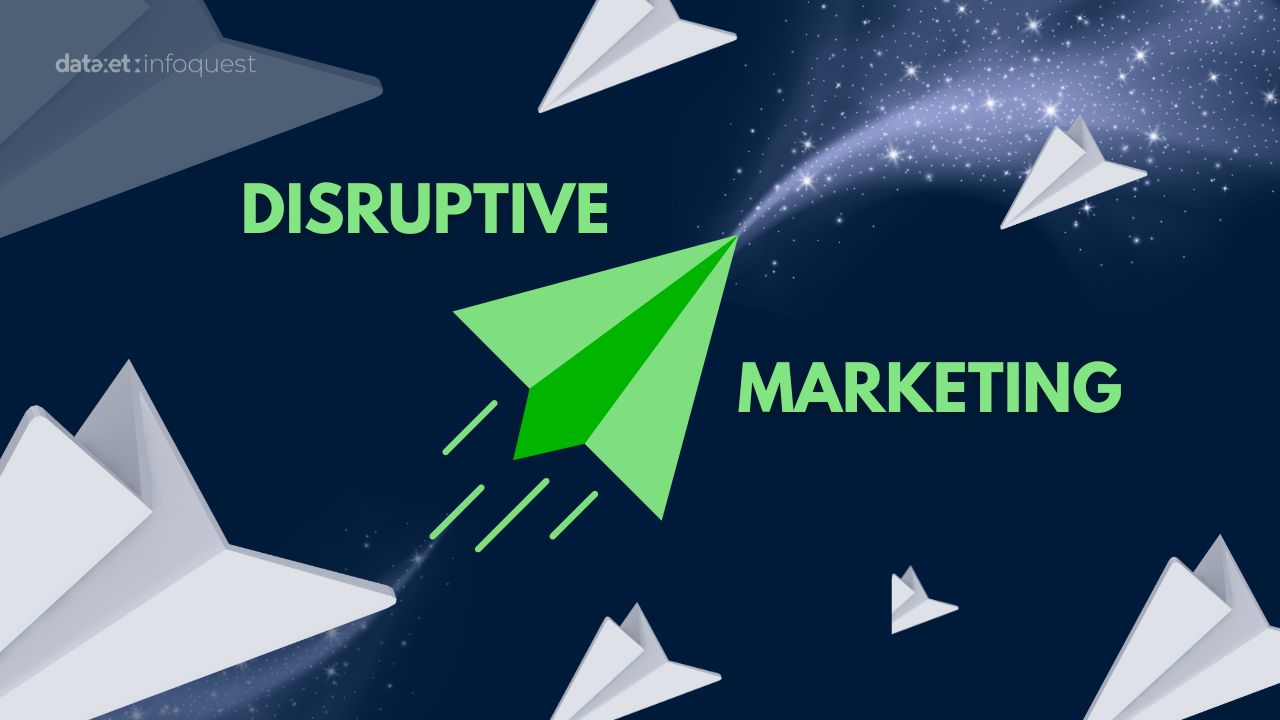
When hearing the term “Disruptive Marketing” for the first time, it might cause some to wonder what kind of marketing it entails. The word “disruptive” might initially conjure up thoughts of disturbance, destruction, or causing something to come to a halt. However, in the context of marketing, Disruptive Marketing is a strategy that can “turn a crisis into an opportunity” for businesses.
Disruptive Marketing is a strategy focusing on never-done-before methods that challenge conventions and the status quo. It is characterized by its appeal and can be described as creating a positive “disruption” or “countertrend” in society. This marketing strategy is often the result of the development of new technological innovations.
Harvard University professor Clayton Christensen first introduced the concept of disruptive marketing, which has its roots in the concept of disruptive Innovation, “a process whereby a smaller company with fewer resources is able to successfully challenge established incumbent businesses”.
Disrupt with Wrapped: Spotify's annual listening habit summary

Spotify, a popular digital music and podcast streaming service, introduced a streaming model allowing users to access an extensive music library through a monthly subscription or for free with advertisements interspersed between songs. This approach epitomizes disruption in music and the traditional music industry, offering a solution to piracy issues and addressing the decline in CD sales.
Spotify has distinguished itself from other digital music platforms by introducing the “Spotify Wrapped” feature. This function analyzes users’ listening data from the past year and creates a personalized summary, allowing users to share their unique music playlists and listening habits. The data is presented in an aesthetically appealing format, ready to be shared on social media platforms. This feature has become a viral sensation worldwide, with users eagerly anticipating their Wrapped playlists at the end of each year.
Core principles for disruptive marketing
Change always comes with risk, so understanding the core principles is an important step to start. The core principles for disruptive marketing are as follows:
Understanding business and target customers
Before deviating from traditional marketing strategies, it’s essential to thoroughly understand the market, the business, and the behavior of the target customers. This knowledge helps in identifying how best to meet their needs.
Embracing new technologies
There are numerous Technological innovations today. By leveraging technologies like Generative AI or technologies that create virtual environments like AR (Augmented Reality) and VR (Virtual Reality), it can be beneficial to bolster marketing campaigns.
Standing out adequately
The primary goal of disruptive marketing is to stand out from the competition. However, avoid getting carried away with unconventional approaches to the extent that brand goals and identity are neglected.
Disruptive marketing is a process of trial and error that requires time to discover the right approach. This journey is inherently natural, so don’t be afraid to make mistakes. Without the courage to embrace change, progress may never occur.

By Piyatida Treesuwan, Sunita Phanraksa







